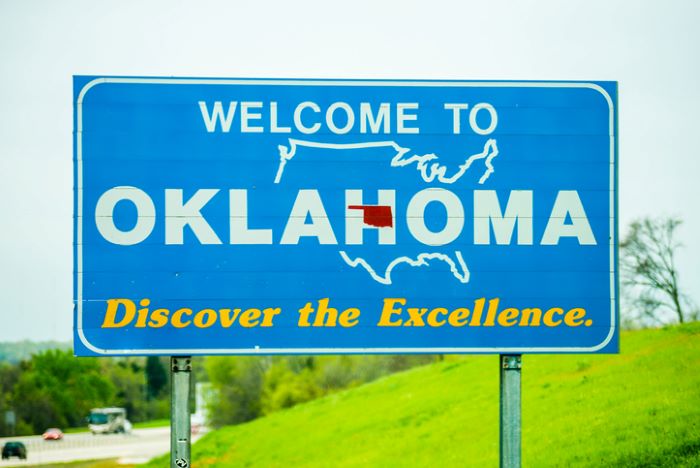OKLAHOMA CITY — The Oklahoma Department of Transportation (ODOT) has submitted a report to the state’s Legislature that looks at funding alternatives for transportation.
Most notably, it considers dropping the current funding model that uses state fuel taxes.
The Fair Miles Oklahoma Pilot Program report to the Oklahoma Legislature which is “designed to explore options for the state’s transportation funding needs for the future, recently concluded after 445 Oklahomans drove and logged more than 1 million miles,” according to a news release.
The pilot aimed to explore potential revenue streams for the state’s roads and bridges while promoting fairness and sustainability statewide.
The ongoing increase in fuel efficiency is expected to decrease available fuel tax funds for Oklahoma’s transportation infrastructure maintenance and future innovation, the report notes.
As such, Fair Miles Oklahoma, mandated by the state Legislature with the adoption of HB1712, is exploring alternative funding options to replace the state fuel tax.
Results from the Fair Miles Oklahoma pilot project will provide data to assist the Legislature as they decide how to fund maintenance and improvements in the state’s transportation infrastructure, including roads and bridges, for the future.
“I’d like to express ODOT’s appreciation to the Task Force and more importantly the citizens of Oklahoma who chose to take part in this,” said Oklahoma Secretary of Transportation Tim Gatz. “The opportunity to generate meaningful information that will contribute to how we manage our transportation system and move forward in the future is something we do not take for granted.”
The 445 voluntary participants represented 63 of Oklahoma’s 77 counties.
The overall makeup of the pilot participants included:
- 40% of participants who live in rural areas.
- Nearly 80% are PIKEPASS customers.
- 12% that are members of a Tribal Nation.
- Nearly 8% who live in households below the poverty line.
Participants also registered a wide variety of vehicles. The composition of the vehicles participating includes:
- 38 different vehicle makes.
- 20 electric vehicles.
- 17 hybrid vehicles.
- Average miles-per-gallon of participants was 22.35 mpg.
Throughout the pilot, participants were asked to report their monthly mileage and acknowledge simulated invoices. Based on the normal driving habits of participants, the following trends were observed:
- 56% of participants selected a GPS enabled reporting option.
- Based on the current 20-cent per gallon fuel tax, the average fuel-tax monthly invoice was $10.01.
- Based on a 1-cent rate, the average pay-per-mile monthly invoice was $10.40.
Rural participants, with low mpg vehicles, on average, pay more in a fuel tax than in a pay-per-mile tax structure.
The pilot project participants began reporting their monthly mileage beginning in May 2023. During the course of the pilot program, participants were asked to complete five short surveys and received a $10 gift card after each completed survey, totaling $50 in gift cards. Participants were selected to maximize vehicle fuel type and geographic diversity to gain a broad spectrum in the resource results.
Overall, participants reported they feel the pay-per-mile funding model is fairer than the current fuel tax model. They also indicated they found the program and technology to be user-friendly and accurate. A copy of the report can be found here or on the ODOT website, here.
For more information, visit www.fairmilesok.com.
Born in Pine Bluff, Arkansas, and raised in East Texas, John Worthen returned to his home state to attend college in 1998 and decided to make his life in The Natural State. Worthen is a 20-year veteran of the journalism industry and has covered just about every topic there is. He has a passion for writing and telling stories. He has worked as a beat reporter and bureau chief for a statewide newspaper and as managing editor of a regional newspaper in Arkansas. Additionally, Worthen has been a prolific freelance journalist for two decades, and has been published in several travel magazines and on travel websites.














